Enterprise-wide, job-ready data & AI skills built for scale
From foundational data and AI literacy to advanced technical or tool-focused skill building, DataCamp equips your workforce with the job-ready data and AI proficiency required to meet the demands of the new era of technology.
Upskilling a small team? Get started today
Solve any data and AI challenge with DataCamp

Support data and AI transformation
DataCamp gives your entire workforce the skills to adopt data and AI at scale.
Build your data and AI academy
Stand up a world-class academy that engages every role and level with DataCamp.

Accelerate tool adoption and ROI
Maximize data and AI investments by ensuring teams quickly master new or existing tools.
Ensure compliance and reduce risk
Equip your workforce to operate responsibly and in line with data and AI regulations.
The DataCamp difference
DataCamp is the only platform uniquely engineered to advance data and AI upskilling across your entire organization.
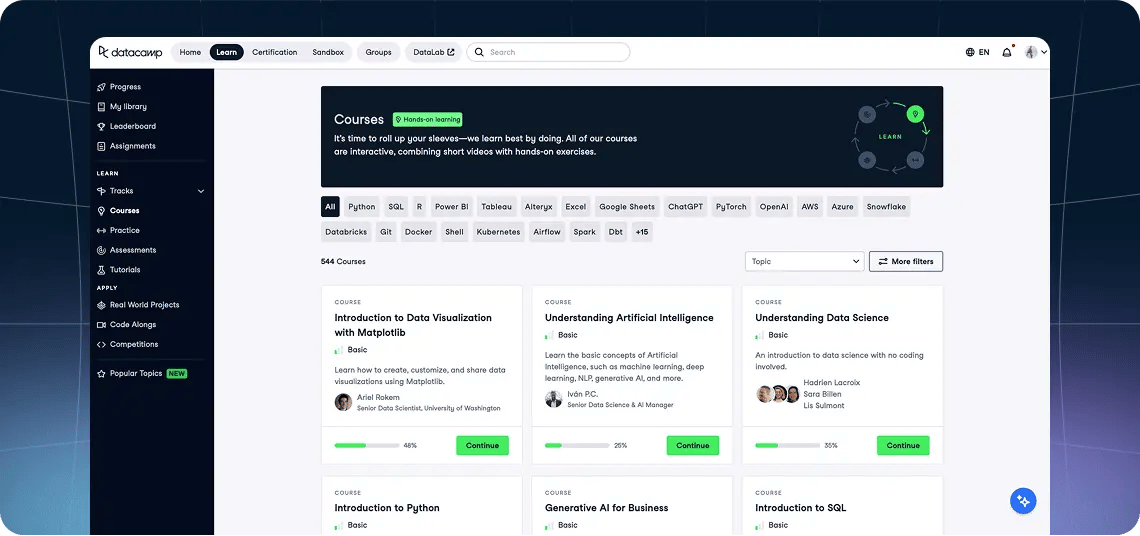
Enterprise-wide learning people love
DataCamp offers role-specific learning for the speed your business needs, whether you have 50 or 50,000 learners.
Learn more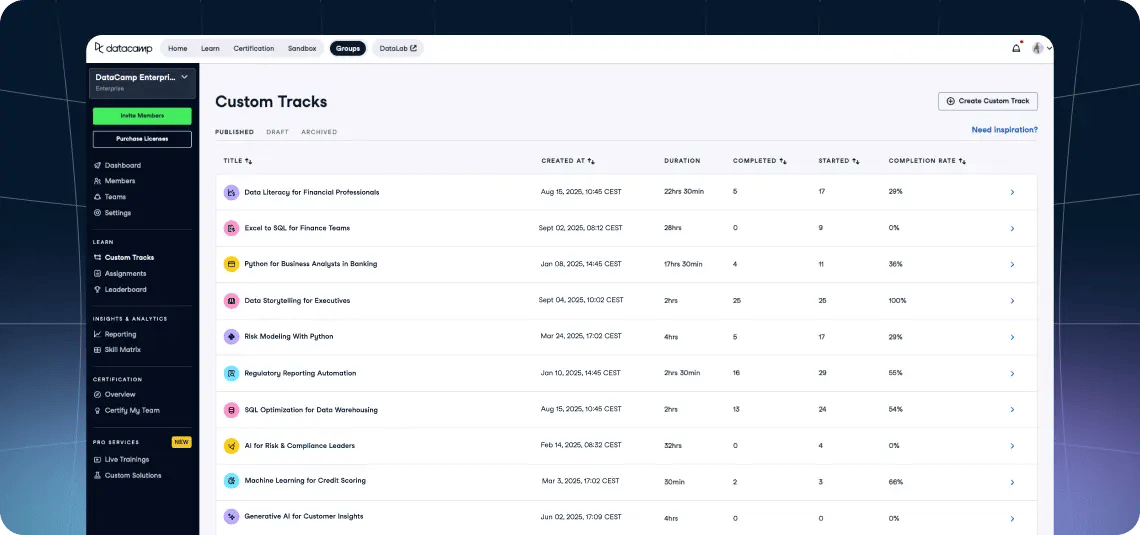
Personalized upskilling via custom-fit curriculum
Create targeted learning experiences, with customized tracks and private courses using your data.
Learn more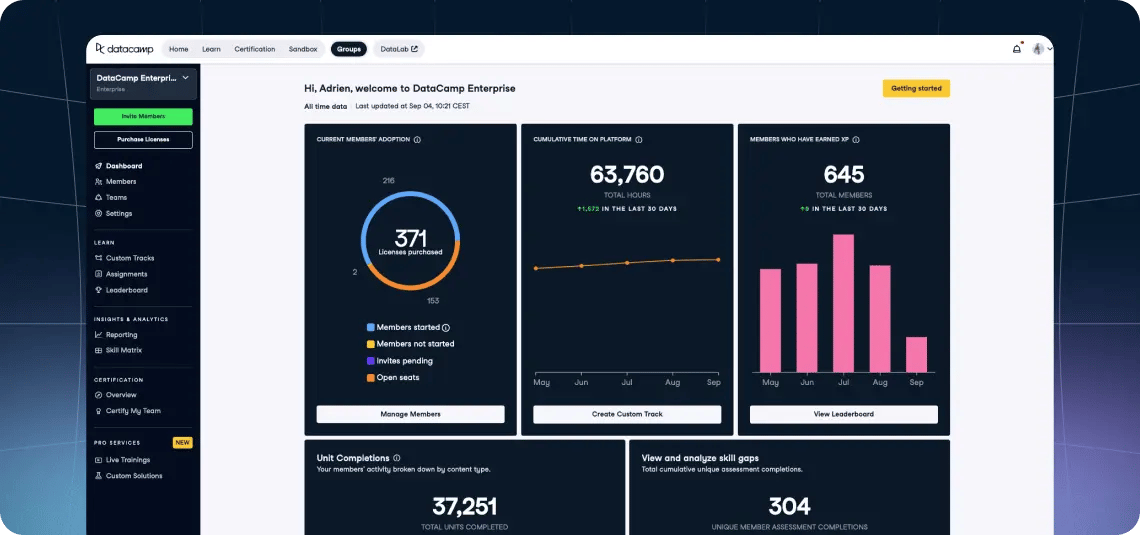
Scales like a platform; delivers like a partner
Launching AI upskilling at scale is complex. DataCamp is your dedicated partner, not just a vendor.
Learn more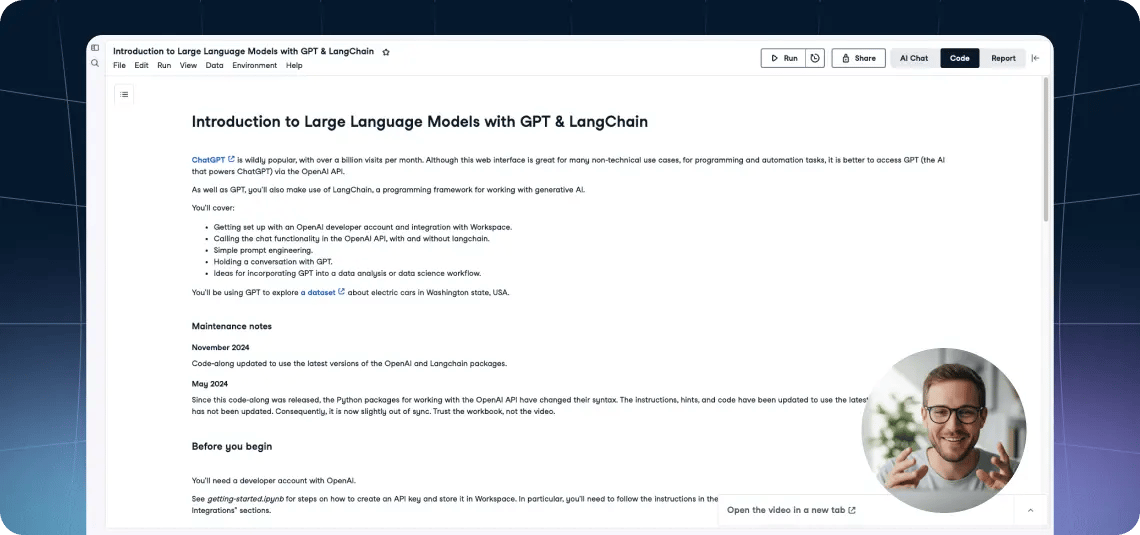
Blended learning for better engagement & outcomes
Whether your teams thrive on self-paced learning, need the structure of live cohorts, or want a mix of both, DataCamp delivers.
Learn moreData and AI upskilling that delivers
“For Allianz, working with DataCamp wasn't about teaching coding to everyone. It was about embedding the belief that problems are solved best through data and AI literacy for better overall decision-making.”
6,000+
Allianz employees learning on DataCamp
2 hours/week
saved per employee thanks to DataCamp skills
“Hiring data and AI professionals was not enough for Colgate to sustain the company's growth and competitiveness. That's why they turned to DataCamp.”
80%
Learners applied DataCamp skills for better decision-making and business outcomes.
14,000+
diverse learners across various Colgate-Palmolive departments
“At Rolls-Royce, we're dealing with complex data sets related to airlines and engines. Through DataCamp, our engineers gained valuable experience and learned how to automate multiple data handling processes that previously had to be completed manually.”
100x
faster data processing thanks to skills learned in DataCamp
Explore expert-curated coverage of every data and AI skill
By Technology
Make your existing tools work harder. From upskilling existing teams to onboarding new talent faster or bringing new users into the fold, DataCamp helps your teams master the tech you’ve already invested in.
Explore Curriculum by TechBy Topic
Cover every corner of data and AI. DataCamp makes it easy to explore and learn the topics your business depends on, from data fundamentals to the frontier of AI technology.
Explore Curriculum by TopicBy Team
Make your people your advantage and bring every team into the data and AI conversation. Whether it’s data scientists, analysts, business, or executives, DataCamp equips every team with the skills to deliver impact.
Explore Curriculum by Team
18M+
learners upskill with DataCamp
6x
higher course completion rates than traditional course providers
4.7
average course rating from our learners






Beyond the curriculum
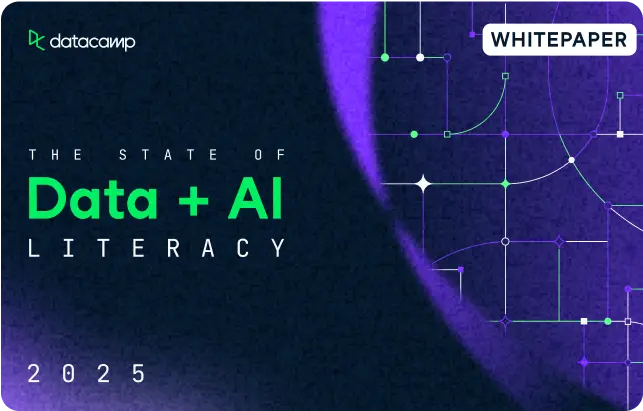
The DataCamp Data & AI Literacy Report 2025
Did you know 60% of leaders believe their organization has an AI literacy gap? We surveyed over 500+ business leaders to understand the evolving landscape.
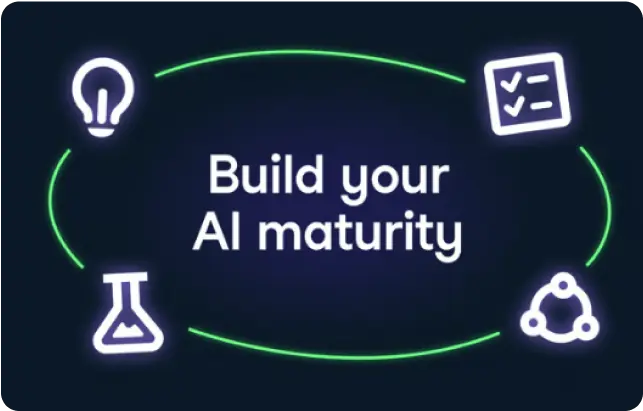
The DataCamp AI Maturity Assessment
AI maturity is more than technology. Is your strategy, infrastructure, and talent ready? Calculate your score in 10 minutes for recommendations.

Upcoming Live Events
Join our webinars and live training for exclusive insights form top organizations on building data and AI skills from the ground up.
See DataCamp in Action
Request a demo and discover why 80% of the Fortune 1000 choose DataCamp.
Upskilling a small team? Get started today